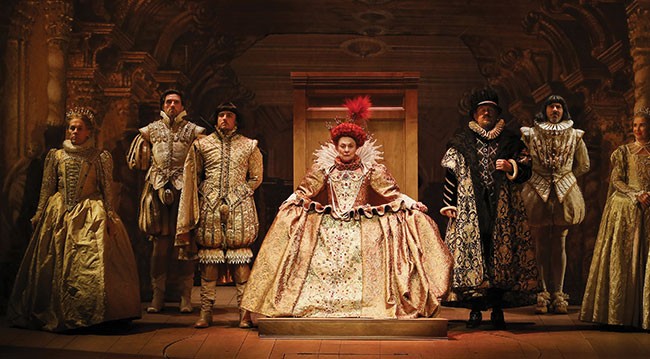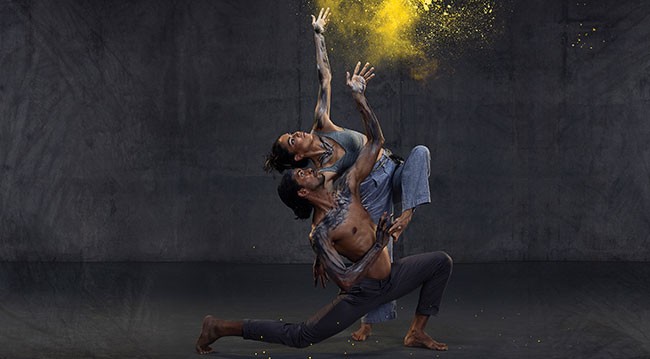The performing arts community has been hit hard as a result of the shutdown. Directors and CEOs share their plans for seeing their organisations through.
The impact of COVID-19 on the arts in Australia has been both swift and savage. April figures from the Australian Bureau of Statistics (ABS) reveal that 53 per cent of arts and recreation organisations had ceased to operate. Grattan Institute figures suggest that 75 per cent of workers employed in the creative and performing arts are likely to lose their jobs. However, those working at board level say the show is far from over. Theatres and other performance spaces may have gone dark, but there is still plenty going on behind the scenes to ensure the sector not only survives, but delivers a strong second act.
The shutdown starts
In late March, Melbourne Theatre Company made the bold announcement that it was cancelling all performances until September 2020. Earlier, the board had weighed whether MTC could modify operations to comply with government restrictions, but decided “that wasn’t really the spirit of it and it was risky”, says chair Jane Hansen AO MAICD. “Even though we may have been able to operate, we knew the community was getting very nervous, as we all were, so it was probably better to take the big decisions early.”
Six productions were cancelled. “We lost 50 per cent of our revenue right there”, says Hansen. “But it meant we could immediately reduce not only general overheads, but direct fixed costs that related to those particular shows, such as set production and creative hiring. The sooner you do that, the better off you are.”
She acknowledges the impact on performers has been devastating. But the Victorian government’s recent $16.8m survival package, designed to support the state’s creative organisations and individuals, might cushion the blow.
Survival strategies
Operational constraints meant that MTC had processed less than 30 per cent of tickets for cancelled shows at the time of writing. However, MTC Foundation chair Janette Kendall FAICD said it was heartening to note that about one in four patrons were opting to donate the cost of their ticket, as opposed to seeking a refund, with conversations arising through this process helping to keep staff “up and motivated”.
The Queensland Theatre Company board also moved fast as the scale of the crisis came into focus, cancelling all remaining performances of a beloved show in progress, Triple X.
“In the course of a week, the environment changed, from ‘do you think there’s a problem with this thing?’ to ‘we absolutely have to shut down the production’,” says chair Elizabeth Jameson FAICD.
But before social distancing guidelines came into force, the deliberations were intense, with eight board members assessing the potential reputational and legal liability risks quite differently.
“There were people saying, ‘We can’t let people gather in our theatre [because] we’ll expose them to illness — and possibly worse’; and those on the board saying, ‘The direction from the public health officials is no change’,” explains Jameson.
Ultimately, it came down to individual risk appetites, she says. “There was no precedent. The decision whether you shut down a production is not something that appears in our delegation table because it’s not generally something you normally do.”
Although Triple X is the only show formally cancelled to date, Jameson notes the “cruelly harsh reality” is that there will be nothing on in theatres until at least September, and possibly longer.

Financial considerations
The cancellation of performances meant both theatre companies were able to avoid incurring production-related costs. However, box office revenues have been decimated, which means they will be drawing heavily on cash reserves to see out the rest of the year and what may be a less-than-buoyant subsequent period. “We’re in a strong position, but there are a lot of companies, particularly in the arts, that live hand-to-mouth — it could potentially wipe them out,” says Jameson.
The financial impacts of the crisis also stretch far beyond the box office. For example, MTC has been forced to halt educational, career development and other ancillary programs, which usually run in addition to main-stage plays. “We can’t deliver those programs and, understandably, the funding that’s tied to that has also been put on hold,” says Kendall.
Most performing arts organisations also face ongoing costs associated with their premises and payroll, with patchy access to rent relief or other government subsidies such as JobKeeper. At MTC, some staff members have been made redundant, while compliance with other cost-mitigation strategies has seen executives and creatives take pay cuts and access any available leave. “They were, quite frankly, prepared to do whatever they needed to do, because they understood that the viability of the organisation was at stake,” says Hansen.
Testing times
Many arts companies are reinventing themselves by developing digital programs, but there are additional costs and challenges associated with this. MTC, for instance, has limited capacity to film performances due to union restrictions, Hansen says.
Musicians employed by the Queensland Symphony Orchestra, however, are working from home to develop performances designed to be live-streamed into regional and remote parts of the state. Chair Chris Freeman AM FAICD says the project has been on the radar for some time, but is only being realised during this enforced downtime.
Freeman notes there have been many changes to decision-making processes since the crisis began, with the entire leadership team joining board members at every meeting. “It’s not a practice you can take on forever, [but] if there were hard decisions to be made, we’d all be involved in making them,” he says.
Meanwhile, Kendall was only appointed to the position as chair of the MTC Foundation in February. She had worked with Hansen as a member of both the MTC and MTC Foundation boards since 2015, so taking the helm during this period wasn’t the baptism by fire it might have been otherwise. Kendall says the director’s role in the current climate involves a strong focus on supporting the executive team through extraordinary times and unbelievable pressures. “It’s to be there when [the executive] need it, but also to get out of their way.”

Bangarra business
As the smoke clears onstage, dozens of Indigenous dancers come into focus during Bangarra Dance Theatre’s full-length production of Bennelong, filmed at the Sydney Opera House, and released for a limited online season. The initiative is part of the dance company’s efforts to keep audiences engaged during the shutdown, says new Bangarra chair Phillipa McDermott. “It’s never a good time for a pandemic, but we’ve had to cancel our national tour this year, which is 90 per cent of our box office.”
McDermott stepped into the role of chair in April alongside new executive director Lissa Twomey GAICD. Some might consider it a daunting time to be leading a performing arts organisation, but McDermott says there have been some upsides to the current crisis, including the opportunity to “get into the weeds where you normally wouldn’t”. “We got to the bottom of everything much faster than we normally would have,” says McDermott. “It’s given us the impetus to look at every single facet of the business and get to know it incredibly intimately.”
When the far-reaching nature of the crisis became apparent, Bangarra immediately sought to ensure the safety of staff, dancers and audience members. But as hygiene and social distancing recommendations yielded to more severe restrictions, the focus shifted to work-from-home arrangements and its associated concerns, including maintenance of employees’ physical and mental health.
“This is a lot trickier than just part of managing a cashflow, when it’s on the human level,” says McDermott, who is also the head of Indigenous employment at the ABC. “It’s making sure that people are set up to work from home. People have got kids, but they might only have one computer. Do they have the right space to work in? Have they got the right internet connection? It’s multifaceted.”
Dancers were unable to return to their families, due to the risks of introducing COVID-19 into remote or closed communities. So Bangarra set them up in shared accommodation, where they participate in training and creative development sessions via Zoom, despite no prospect of a performance in sight.
“They’ve been very adaptable and are very conscious of their own need to be fit and healthy, and stay ready to perform,” says McDermott.
Given the focus on other priorities, the Bangarra board is also considering whether a planned move from its premises at Barangaroo to new digs in The Wharf will proceed according to schedule. “Having to think about (our) staff first and foremost, and their safety, has taken up a lot of our time,” she says. “But of course, without them, we’re not here.”
Latest news
Already a member?
Login to view this content

